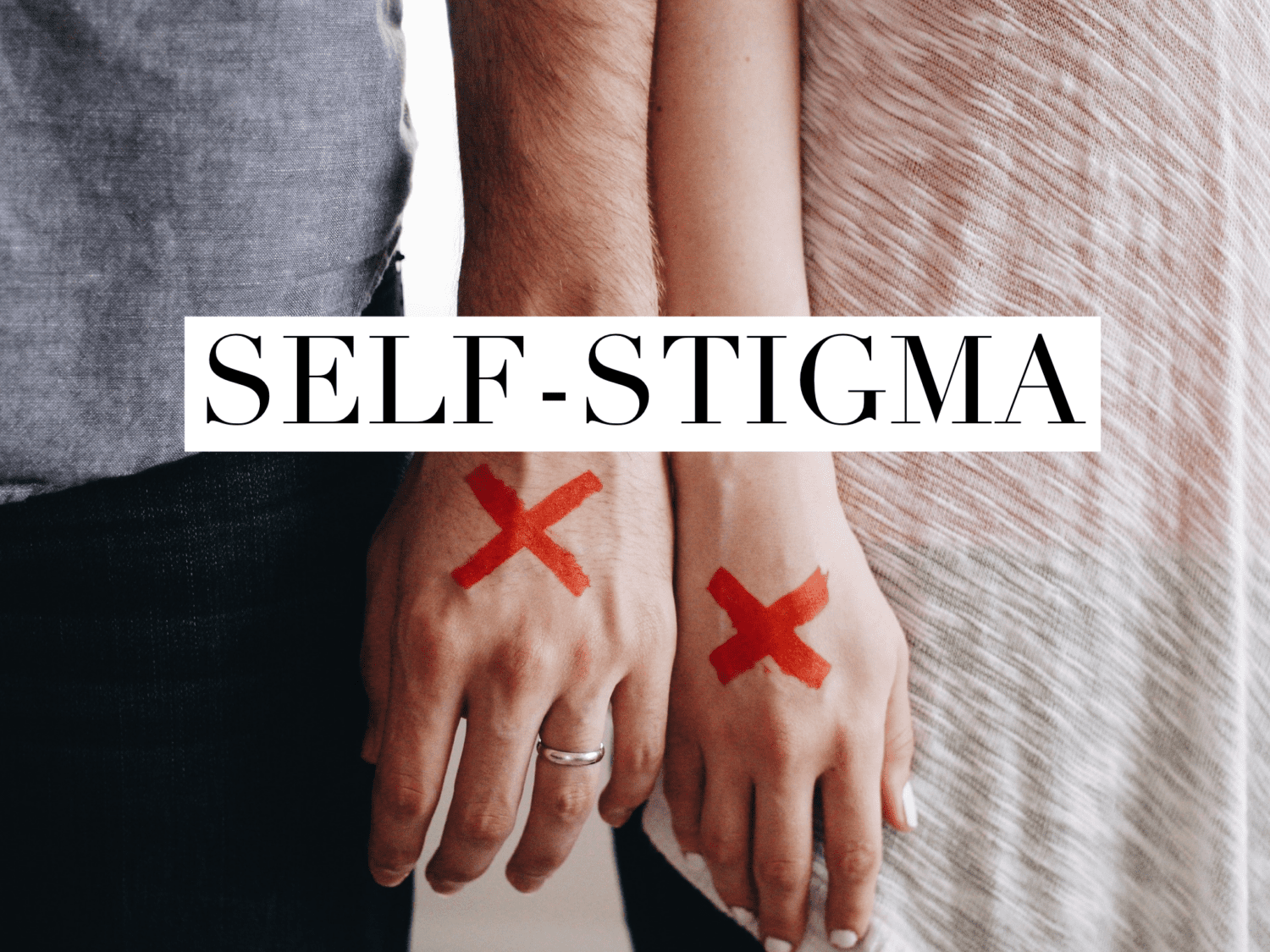Self-Stigma
Stigma is often talked about with mental health. However, do you know there are different kinds of stigma such as self-stigma? Self-stigma happens when an individual suffering from mental illness accepts the negative and inaccurate views of others about themselves and their mental health. 
Self-stigma influences how people feel about themselves. It also has a significant impact on their behavior and actions. Self-stigma frequently leads those suffering from mental illness to not come forward or seek help for their illness because they don’t want the label that comes with it. Even worse, stigma becomes another obstacle and can leave individuals feeling isolated. This can all lead to low self-esteem and can work against successful treatment, support, and recovery.
Also, accepting others’ negative and inaccurate views about mental illness can have an extremely harmful effect on the sense of self, of who you are. Self-stigma can affect any individual and a range of mental illnesses.
However, there is hope. Reducing self-stigma and all types of stigma is an essential part of mental illness. A report for the Mental Health Foundation of New Zealand, Fighting Shadows (2008) came up with eight recommendations for eliminating stigma:
- recognize the contribution of people with mental illness and encourage leadership
- celebrate and accept differences
- support human rights
- encourage disclosure
- encourage recovery-oriented practices
- encourage empowerment
- support peer support services
- challenge attitudes and behavior.
Also, Psychology Today recommends trying to practice saying positive statements about yourself and your illness such as:
- “Depression is a real medical illness.”
- “I am much more than my depression.”
- “Living with a mental illness offers me greater insight and compassion.”
To learn more about mental health and stigma, try reading this article published in Psychology Today.
Have you ever been affected by stigma? Have you ever witnessed stigma? We’d love to hear from you!




Recent Comments